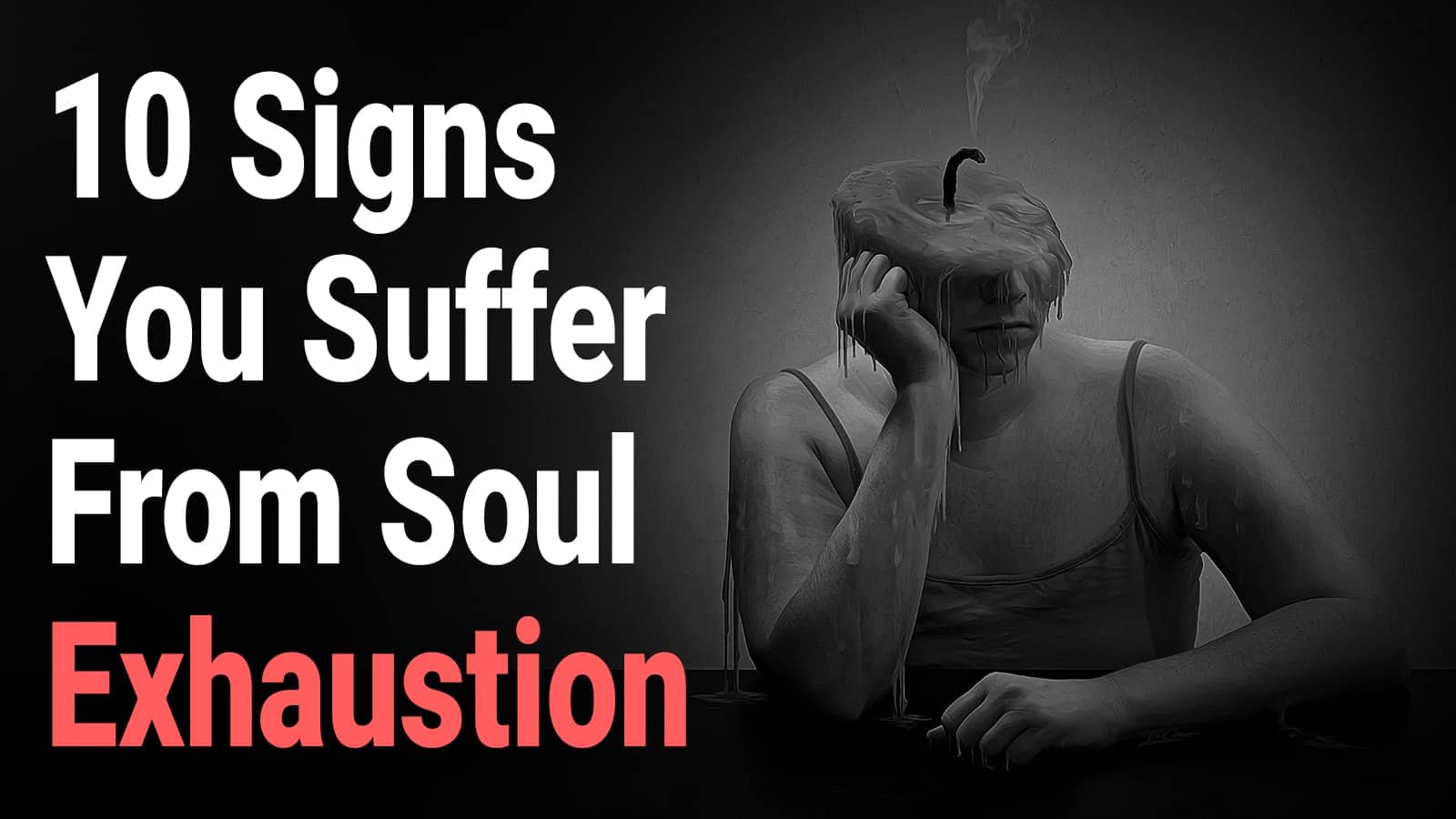Compassion fatigue is a bit of a misnomer, and its name means many people don’t understand it as well as they should. It can sometimes be looked at as a selfish thing to experience, as feeling “tired” from caring for other people can sound like a negative and self-absorbed thing to feel.
But that’s not what compassion fatigue is, and thinking of it in this manner can be harmful. It’s a severe problem, and it needs to be addressed and prevented with specific steps, especially if you’re at risk. Here are the answers to what compassion fatigue is and how to avoid it.
Defining Compassion Fatigue
Compassion fatigue refers to a condition caused by the effects of helping or caring for others. In simpler terms, it is exhaustion resulting from extreme shows of compassion. It can manifest in psychological, physical, and emotional effects and is often mistaken for generic burnout, which is a form of general mental fatigue.
Compassion fatigue tends to occur when you’ve spent a lot of time helping someone through something complicated, such as trauma or stress. It can also happen as a side-effect of specific caregiving jobs.
Other Names for Compassion Fatigue
There are other terms used when describing compassion fatigue, too, such as:
- Secondhand shock
- Vicarious trauma or vicarious traumatization
- Secondary victimization
- Secondhand stress reaction
- Secondary traumatic stress
- Secondary survivorhood
- The “cost of caring.”
By these names, it is easy to see that compassion fatigue is when you feel the adverse effects of other people’s troubles and problems, even though you’re not personally experiencing them yourself. But according to studies, it takes more than just general compassion to experience this fatigue – it requires empathy. This means that compassion fatigue occurs because you feel for the people you’re helping or relate heavily to the people around you.
Who Is Most At Risk Of Compassion Fatigue?
Though anyone can develop compassion fatigue, certain people are at higher risk than others. Knowing if you are in a risk group can help you ensure that you can deal with compassion fatigue. Awareness is one of the critical steps to prevention. The people most at risk are as follows:
· Those Who Work In Healthcare
People who work in healthcare fields have very high risks of developing compassion fatigue. The job inherently requires caring about others and potentially watching them struggle with painful or difficult circumstances, breaking bad news to patients, and even witnessing death. As an example, 86% of all emergency room nurses meet the description of compassion fatigue. Physicians, mental health professionals, caregivers, critical care personnel, ambulance paramedics, and other healthcare workers are all automatically at risk due to the nature of their work.
· Those With Unmanaged Trauma
If you’ve experienced trauma in the past and didn’t learn positive coping mechanisms, the negative aspects that linger in your life can open you up to the risk of compassion fatigue. These negative aspects may include bottling up your feelings, withdrawing and isolating yourself, or using addictive substances to cope.
· Those Who Work In Student Affairs
Post-secondary education institutions are often home to a diverse student population, including marginalized individuals and those who deal with many personal issues. Student affairs professionals have, in recent years, experienced a steadily broadening scope of responsibilities, including the management of crises, traumatic events and even developing compassionate connections to students in their care. This emotion can put them at risk of compassion fatigue, and many staff who work in such positions have a desire to quit as a result of these effects, according to research.
· Those With Certain Personalities
Did you know that certain personality traits can put you at risk for developing compassion fatigue? If you are a perfectionist, very conscientious, or selfless, you have a higher risk of dealing with compassion fatigue. These typically track logically – if you like to be planned and get things perfectly done, you are more likely to struggle with dealing with the messiness of caring for another person. Or, if you are more selfless, you are more likely to face tiredness from being kind to others.
· Those Who Work In The Legal Field
Attorneys and lawyers are often at risk for developing mental health disorders due to their compassion fatigue. Many struggles with their job’s emotional and mental toll can take, as most legal training does not involve education in trauma management. Long hours and heavy pressure can further decrease positive thinking and lend itself to this problem.
· Those With Poor Social Support
If you lack social support, you are more likely to face difficulties because you cannot gain the support of others in your caregiving duties. Your tiredness can be amplified when you don’t have anyone to help you while you spend a lot of your time caring for others or many other people.
Once again, it is worth a disclaimer that anyone can experience compassion fatigue, even if they are not statistically at risk. You shouldn’t discount your personal feelings and experiences just because you’re not in a relevant group.
Symptoms of Compassion Fatigue
It is not always easy to discern compassion fatigue, as it can be mistaken for many other issues and is easy to dismiss. Keeping an eye out for the warning signs can help you determine if you’re experiencing this kind of fatigue.
It is easy to insist to yourself that you have no right to feel negative when you’re caring for those who seem to be suffering more than you. Don’t fall into this trap.
Know the Symptoms
Instead, keep an eye out for symptoms such as:- Feelings of anxiety, nervousness, irritability, jitteriness, anger, sadness, or other strong negative emotions
- A reduced sense of personal accomplishment or career accomplishment
- A lowered tolerance for stress or decreased resilience to challenging situations
- Lower levels of empathy, sometimes to the point of no longer being able to care about others at all
- Repeatedly dwelling on and thinking about the suffering of other people
- Experiencing helpless, powerless, overwhelmed, or hopeless feeling when you’re faced with, witnessing, or hearing about the suffering of others
- A loss of focus or concentration, especially when making decisions
- Feeling physically or emotionally detached from the world around you or your personal experiences
- Blaming yourself or berating yourself for not being able to do more or not having done more
- Dramatic mood swings
- Becoming extremely sensitive to any emotional feelings and situations – or losing sensitivity to them entirely.
- Experiencing a dramatic change in belief systems regarding yourself, the world, your future, your purpose, or life
- Higher instances of conflict in relationships
- Worsened productivity at work, or heightened perceived productivity
- Behavioral issues, such as inadequate coping mechanisms, substance abuse, or self-isolation
- Physical symptoms like dizziness, nausea, headaches, digestive problems, tiredness, insomnia, and nightmares
Awareness is one of the key ways that you can prevent compassion fatigue. If you notice worrying signs or symptoms in advance, you can learn to take a step back and use positive coping methods, so your risks lessen.
How to Prevent Compassion Fatigue With Self-Compassion and Health Social Interactions
Ironically, compassion fatigue can be combated with more compassion – but, specifically, compassion towards yourself. Remembering that you need to be kind to yourself and are deserving of your own compassion is an important part of managing and dealing with compassion fatigue. Regular self-compassion as a part of your life can also be instrumental in preventing the condition by infusing you with positive habits. Here are some tips for being kind to yourself:
1 – Practice Self-Care
Taking time for yourself and to look after yourself is a top way to manage compassion fatigue and tiredness. You may feel guilty about needing to look out for yourself, but not doing so doesn’t just damage your wellbeing. It is also going to be evident around those you’re caring for. Again, this is a little ironic, but you have to care for yourself to be a good caregiver, too. Eat well, get enough sleep, exercise a little bit, and make sure you have some me-time for rest.
2 – Fully Understand Self-Care
A lot of people throw the word “self-care” around without truly understanding what it means. It’s not about robotically going through the motions of technically taking care of yourself. It means allowing yourself to enjoy guilt-free things, prioritize your well-being, and applaud yourself for taking the time for self-care. Understand that self-care is not only important. Indeed, it is also just a fantastic thing that you should be proud of yourself for doing!
3 – Schedule Hobby Time
If you’ve recently become very busy caring for something or someone, you may not have had time to do the things you love. Don’t forget to spend some time unwinding on things you enjoy. You’ll feel much better after, and this will ensure that you aren’t neglecting yourself while caring for others.
4 – Positive Social Interactions
Withdrawal and social isolation are tempting when dealing with compassion fatigue, and it’s also easy to do by accident if you’re very busy and occupied. But lacking social interaction is a quick and easy way to harm your exhaustion levels. It would be best if you were around other people and be supported by them to reduce the risk of compassion fatigue.
When was the last time you hung out with the people in your life who matter most, like friends and family? Have a meal with them, chat with them over the phone or through text, and arrange to hang out. Your loved ones don’t need to directly attempt to support you to help you with compassion fatigue; just being around them can work wonders for your positive thinking and wellbeing.
You can also find caregiver support groups if you work in a profession where compassion fatigue is common. You’ll find many people dealing with the same feelings and difficulties. It can be a great way to learn healthy coping mechanisms and build a community with supportive, understanding, and kind people.
Final Thoughts On How To Prevent Compassion Fatigue
There is nothing shameful about feeling compassion fatigue. If you find yourself beginning to deal with this kind of exhaustion, take the necessary steps to care for yourself and finding support. If necessary, you can speak to a mental healthcare professional for further advice and help.
















 Community
Community

